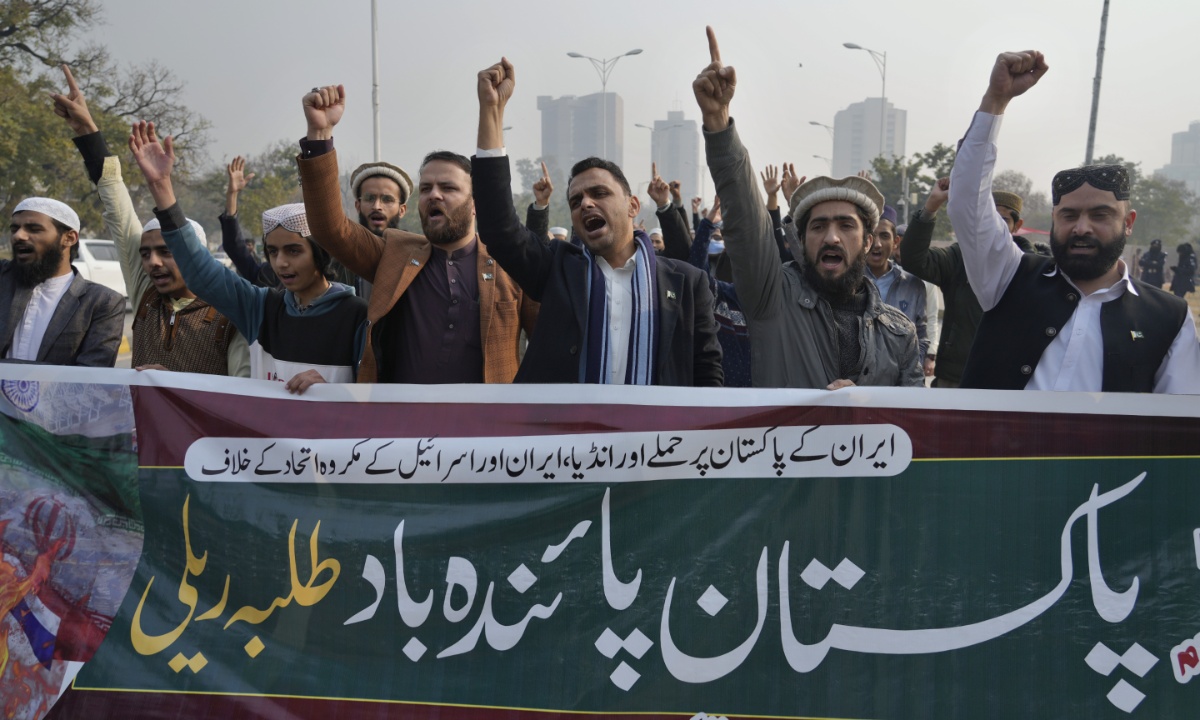Pakistan’s air force conducted retaliatory airstrikes early on Thursday in Iran, targeting alleged militant hideouts and resulting in at least nine casualties. The tit-for-tat attacks were aimed at Baluch militant groups with similar separatist goals on both sides of the Iran-Pakistan border. Both nations have accused each other of providing safe haven to these groups.
The strikes have heightened tensions between Iran and Pakistan, with longstanding suspicions over militant attacks and internal political pressures playing a role. Pakistan’s Foreign Ministry described the airstrikes as “highly coordinated and specifically targeted precision military strikes” based on credible intelligence of impending large-scale terrorist activities.

Pakistan Conducts Counterattacks in Iran, Resulting in 9 Deaths (Credits: AP News)
The military operation, named “Marg Bar Sarmachar” by Pakistan, used various weapons, including killer drones, rockets, loitering munitions, and standoff weapons. Stand-off weapons, fired from a distance, indicate that Pakistan’s fighter jets likely did not enter Iranian airspace.
The attacks led to casualties near the town of Saravan in Iran’s Sistan and Baluchestan province, with the Baluch Liberation Army claiming that its members were targeted. The group issued a warning of retaliation, declaring war on Pakistan.
Amid the escalation, Pakistan’s caretaker Prime Minister and Foreign Minister cut short their trips to Switzerland and Uganda, respectively. Iran summoned Pakistan’s charge d’affaires, and diplomatic relations between the two neighbors are at risk.
The cross-border region between Iran and Pakistan has witnessed a low-level insurgency by Baluch nationalists for over two decades. The recent strikes targeted different groups: Jaish al-Adl, a Sunni separatist group, and the Baluch Liberation Army, an ethnic separatist group.
Both Iran and Pakistan face internal political pressures, and the risk of further escalation remains. Iran plans to conduct an annual air defense drill, Velayat 1402, from its port of Chabahar near Pakistan, involving live-fire exercises with aircraft, drones, and air defense systems.
The attacks also raise questions about the preparedness of the countries’ militaries, especially regarding radar and air defense systems. The geopolitical considerations involve the use of foreign weapons in the conflict, with China urging restraint due to its significant role as a partner in both Iran and Pakistan.
The situation adds complexity to regional dynamics, considering the involvement of major powers and the shared border’s significance for smuggling and global opium shipments. The ongoing tensions highlight the challenges faced by both Iran and Pakistan in maintaining regional stability.























